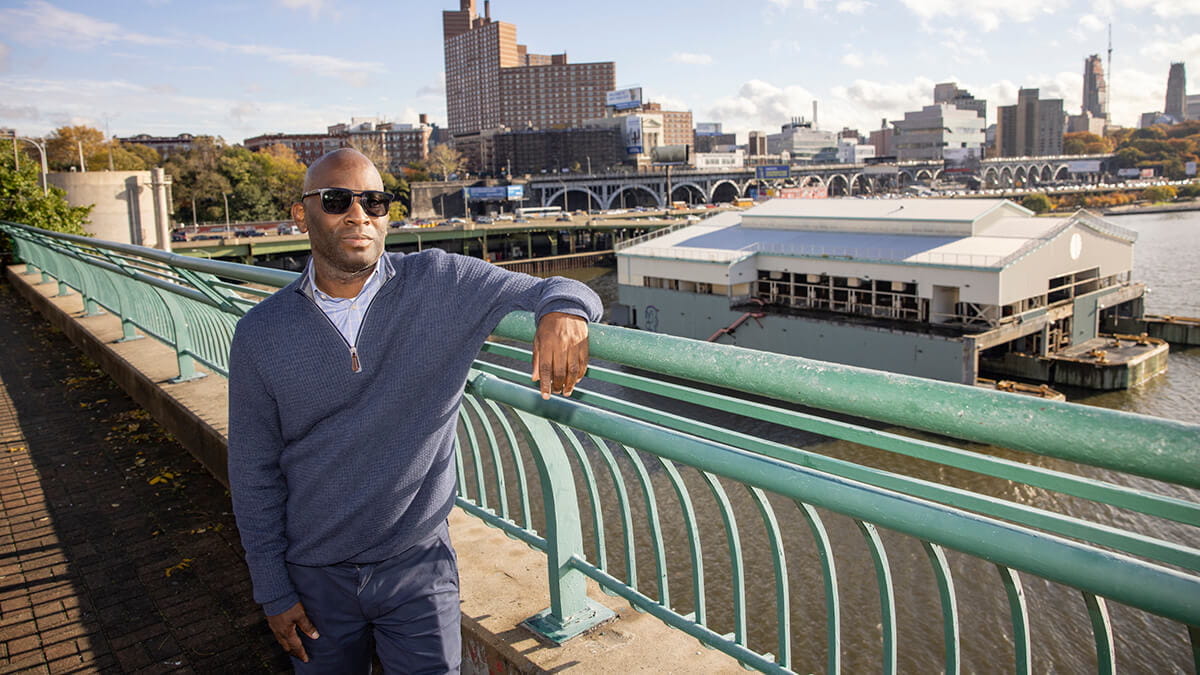Louis Bailey ’21, MS in Health Education and Promotion, grew up in West Harlem and witnessed the effects of environmental injustices on his community. This experience drove him to become a social change agent in his professional life, advocating for people in underserved communities.
Bailey works as a membership and organizing manager for WE ACT for Environmental Justice in New York City. The community-based organization helps build healthy communities by ensuring that people of color and/or low-income households participate meaningfully in the creation of sound and fair environmental health and protection policies and practices.
For Bailey, earning his master’s degree was an achievement that enhanced an ongoing career as an advocate for social justice. Long before pursuing his online MS degree from Walden, he began working for WE ACT. “My role at WE ACT is to educate, initiate, and agitate,” Bailey says. “I see myself as a convener, a connecter, and a catalyst for change.”
WE ACT was one of the first environmental organizations in New York run by people of color. It was formed in the late 1980s to fight harmful air pollution being produced by both a Harlem-based sewage treatment plant and a number of local diesel bus depots. Driven by a dynamic team of activists, lawyers, health experts, and visionaries like Bailey, WE ACT advocates for environmental justice.
“Environmental racism is not a new concept,” Bailey says. “Our history is filled with people who were told they couldn’t live in a certain neighborhood, and the dumping of raw sewage and other municipal waste in communities of color.”
Bailey’s passion is personal. “I grew up in Harlem in the ’70s, so I was right there in the thick of it,” he says. “The environmental practices and policies that were allowed were seriously hurting communities of color.”
“Seeing firsthand [the] environmental justice issues around the country now has broadened my perspective even outside my own community,” he adds. “I’ve seen communities around the country that are continuing to suffer the impacts of environmental racism and racist policies and procedures.”
Much of WE ACT’s work focuses on informing, educating, training, and mobilizing residents to engage in community-driven political and policy-change activities. The group also works to ensure that fair environmental health and protection policies are enacted and carried out at the local, state, and federal levels. Bailey’s contribution to that vision is to travel the country training and educating WE ACT members and working to gain funding for the organization’s efforts.
WE ACT has already made strides in its efforts to combat environmental racism. The group’s notable advances include suing and settling a lawsuit with the City of New York over the polluting sewage treatment plant that kindled the birth of the organization. WE ACT also launched a successful campaign to replace hundreds of diesel-powered buses with buses that run on alternative fuels, and the group pushed for the renovation of a bus depot into a model green structure named after Harlem cultural icon Mother Clara Hale.
And the work continues. Bailey and WE ACT are currently pursuing numerous environmental policy and procedure changes, including a recently passed bill that will create an all-electric, zero-emission New York City school bus fleet by 2040. WE ACT also successfully spearheaded an initiative to ban the use of natural gas in new construction in New York City to reduce carbon emissions and unsafe gas fumes.
Bailey, meanwhile, is pressing on to help communities, continuing to fight environmental injustice until his vision becomes reality. “I’m passionate about these issues,” he says. “I’m anxious to use the knowledge I gained in earning my master’s at Walden and use it for good. I’m anxious to get back into the communities and educate and bring forth their stories and make sure the policymakers hear their voices. We’ve made some strides, but there is much work left to be done.”
If a career like Bailey’s appeals to you, you may be interested in one the many online health education and public health programs available at Walden. You can build a foundation in public health and advance your career while continuing to work, just as Bailey did. If you have a passion for helping communities address public health issues, explore the various bachelor’s, master’s, and doctoral public health and health education programs, or see how you can add to your education with a Graduate Certificate in Public Health. There are plenty of related programs, too, in counseling, public policy and administration, and social work and human services. Visit Walden University today and see how you can get an Education for Good®.
Walden University is an accredited institution offering an MS in Health Education and Promotion. Expand your options and earn your degree in a convenient, flexible format that fits your busy life.




